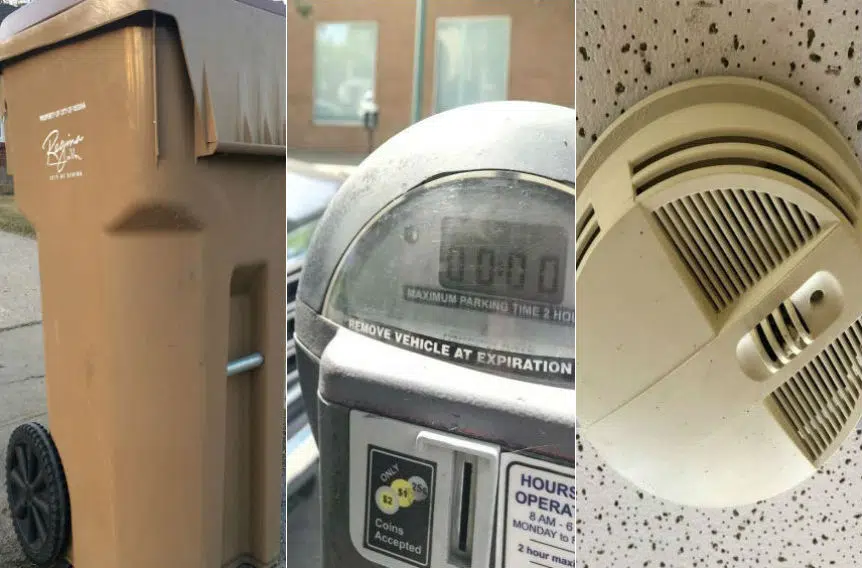From paying for parking with a smartphone app, to a new curbside bin for food and yard waste, Regina city council will be voting on a few big changes Monday.
Organic waste program
Regina homeowners could see organic waste bins rolling to their curbs in a pilot project as early as 2020 if council votes to approve the plan.
The curbside organic waste service would provide a bin for things like food scraps and yard clippings like leaves and grass. The city’s director of solid waste management pitched the program in August, noting that food and organic waste make up about 50 per cent of the material currently going into the trash.
The plan would also come with the goal of reducing regular garbage pick up to every two weeks throughout the year. The cost is predicted to be about $7.9 million annually – meaning homeowners would have to pay between $36 and $51 more in property taxes. Administrators said this would reduce the cost of regular garbage collection by $4.6 million.
The city’s Public Works and Infrastructure committee already endorsed the program, passing it along to council to vote on whether to spend money in the 2019 budget to start up the first phase of the program.
Pay for parking with your phone
Drivers who forget to carry change for parking metres could soon have the option of paying with a smartphone app.
City administration is already working on the app which would record licence plate numbers to be checked by parking enforcement officers. This system could be used along with existing parking metres and would not require any new infrastructure.
Council still has to change the parking bylaw to accommodate the app, but it could be ready for parking spaces as early as 2019.
New fire bylaw
Councillors will also be asked to consider a new fire bylaw which would require landlords to test fire alarms every six months. The bylaw also proposes fees for false alarms and new permits for open air fires and fireworks.
Regina Fire and Protective Services said 10 out of 15 fire fatalities in the last decade happened in residential rental units. Current bylaws only require smoke alarms on the level of a house where there are bedrooms. The proposal would require them on all levels of a home and require battery backups in case of power outages.
The fire department is also asking council to consider implementing fees to cover the cost of responding to false alarms triggered by faulty devices. The first false alarm would result in a warning letter, the second would cost $300 and any consecutive calls would cost $600. There would be no charge for alarms actually triggered by smoke, even minor smoke like burnt toast.
People selling fireworks would also have to pay $106 for a permit to cover three locations. Anyone setting an open air fire – not including backyard fire pits – would have to pay $62.
— With files from Jessie Anton and Andrew Shepherd











